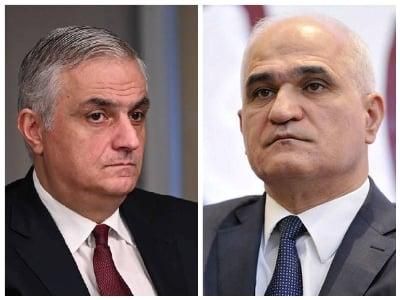First belated meeting: Unpacking the DD arrangements

By Orkhan Amashov
One of the truly tangible and easily identifiable results of the 22 May Brussels meeting focused on the border issue. Baku and Yerevan, through the good offices of the EU, agreed to proceed with the first joint meeting of the border commissions as a matter of unflinching urgency. Two days later, on 24 May, the very first convocation involving the participation of the Deputy Prime Ministers of Azerbaijan and Armenia took place.
DD agenda
The delimitation and demarcation (DD issue) of the interstate border is a critical component of the normalisation between the two parties and constitutes a vital ingredient as a larger precursor to a future peace treaty. All the results achieved by the joint work of the border commissions, and concords agreed upon, will then be translated into the provisions of a prospective comprehensive deal.
To use the technical language of international law, as seen under the guise of the OSCE guidelines, “delimitation of the boundary” is legal formalisation in a treaty of the state boundary between adjoining states, whose position is graphically plotted on the topographic map and duly defined in its corresponding written description, whereupon the map and the description may become an integral part of the treaty or its annex. This slightly circumlocutory definition says it all.
At present, as it may be ascertained from the text of the post-meeting statement that the focus is on delimitation as the initial stage, and thereafter the parties will be able to move into the demarcation phase, where the delimitation maps will be translated to the ground.
Functional framework
European Council President Charles Michel’s post-meeting speech specified the two segments of the commission’s functional scope, addressing all questions related to delimitation of the border and ensuring stability. Demarcation is not touched upon, due to the obvious exigency of the present phase.
To this effect, Azerbaijan has mostly appeared to emphasise the delimitation part of the commission’s mandate, whereas Armenia has viewed the entity as a joint watchdog reporting on border security and rectifying deviations. The 22 May meeting has provided extra clarity as to what the joint work of the commissions is supposed to achieve.
Belated development
The inaugural meeting on the state border was undoubtedly a belated development. On 6 April, the sides agreed to establish border commissions to address security issues and delimitation matters. The first meeting should have been convened by 29 April, but nothing eventuated. The meeting scheduled to take place on 16-17 May was also cancelled. Armen Grigoryan, Secretary of the Armenian Security Council, justified this by citing Baku’s refusal to consider the “final determination of the status of Nagorno-Karabakh”, entailed in Yerevan’s “six-point package”.
On the day the commissions convened, Charles Michel warmly welcomed the development, describing it as tangible progress. It was also agreed that the next two consecutive meetings will take place in Moscow and Brussels.
There has never been a properly delimited and demarcated state border between Azerbaijan and Armenia. Between 1918-20, the two nations were at war. During the Soviet age, what one conditionally may call a “partial delimitation” was carried out, but the borderline was never demarcated, as both countries were part of the one sovereign entity, and the practical need was less than pronounced.
The May 2021 incidents around the Sev Lidj (Qaragol) in the Syunik region (Western Zangazur) have again raised the importance of full delimitation and demarcation of the state border between Armenia and Azerbaijan.
It is unclear with what degree of honesty Yerevan is committed to fixing the interstate border issue. One of the aims of the ongoing protests currently engulfing Armenia is to ensure that the government makes no plausible movement towards a peace deal. It is beyond doubt that Pashinyan's administration is given to wavering between different options under pressure.
The DD agenda also entails elements related to the thorny exclave subject, in relation to which the parties have been at loggerheads for some considerable time. Baku and Yerevan see the subject differently. The former believes that control over exclaves is to be transferred; the latter is of the opinion the existing control regime is to be preserved.
The latest trilateral meeting in Brussels has given renewed impetus to the negotiations. The border commission’s latest meeting is a case in point. Now that momentum has been re-engendered, it is vital that it is not slackened, like a slipping noose that ultimately strangles.
The ongoing peace-resistance demonstrations entrapping Yerevan, and the incumbent government’s vacillation, together with other external influences, form a major stumbling block on the way to an even more decisive breakthrough that will be for the greater good of all.
---
Follow us on Twitter @AzerNewsAz
Here we are to serve you with news right now. It does not cost much, but worth your attention.
Choose to support open, independent, quality journalism and subscribe on a monthly basis.
By subscribing to our online newspaper, you can have full digital access to all news, analysis, and much more.
You can also follow AzerNEWS on Twitter @AzerNewsAz or Facebook @AzerNewsNewspaper
Thank you!
